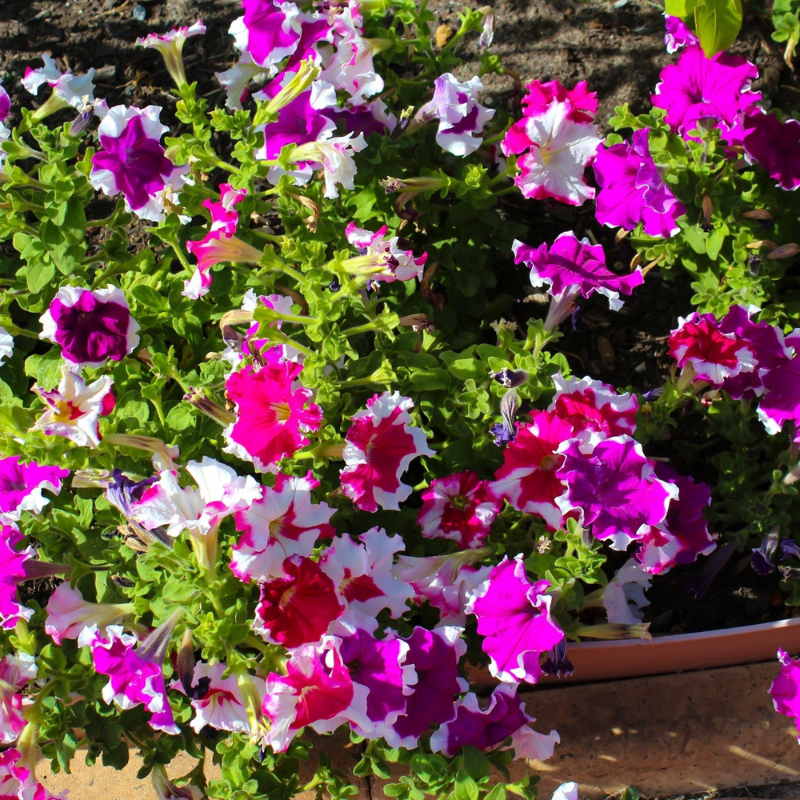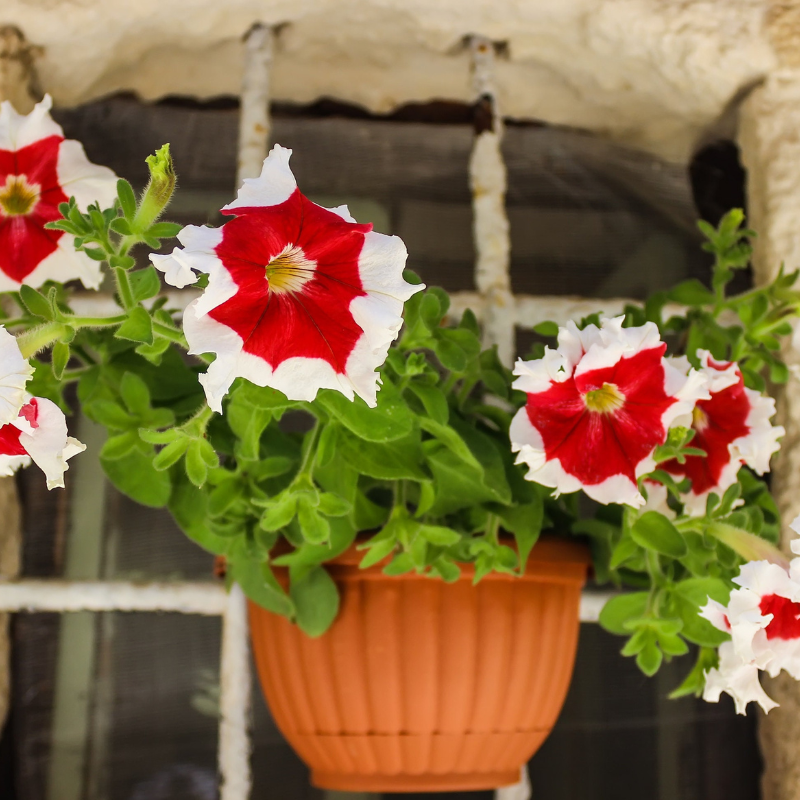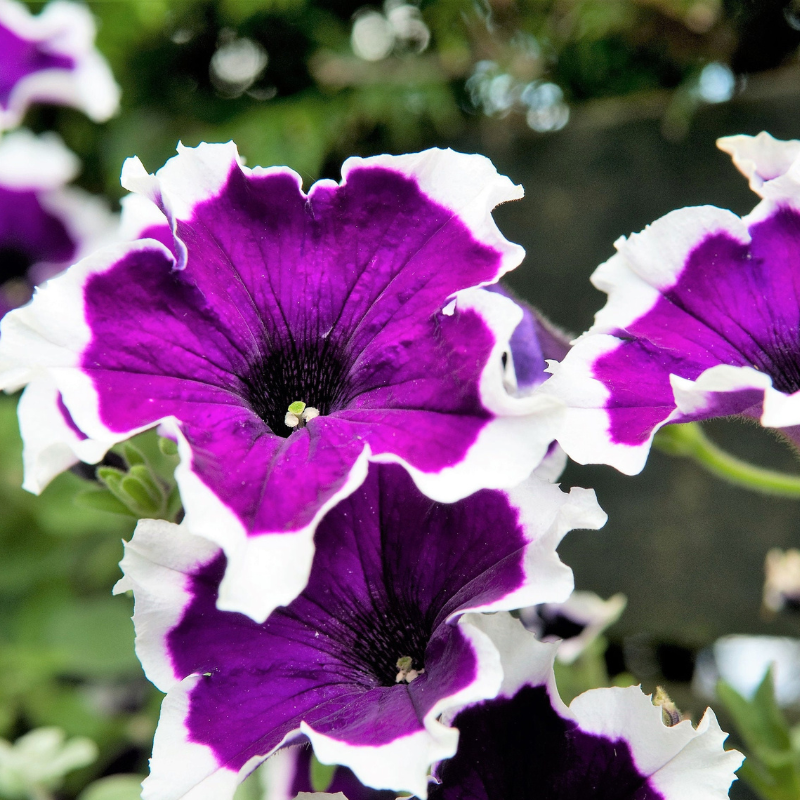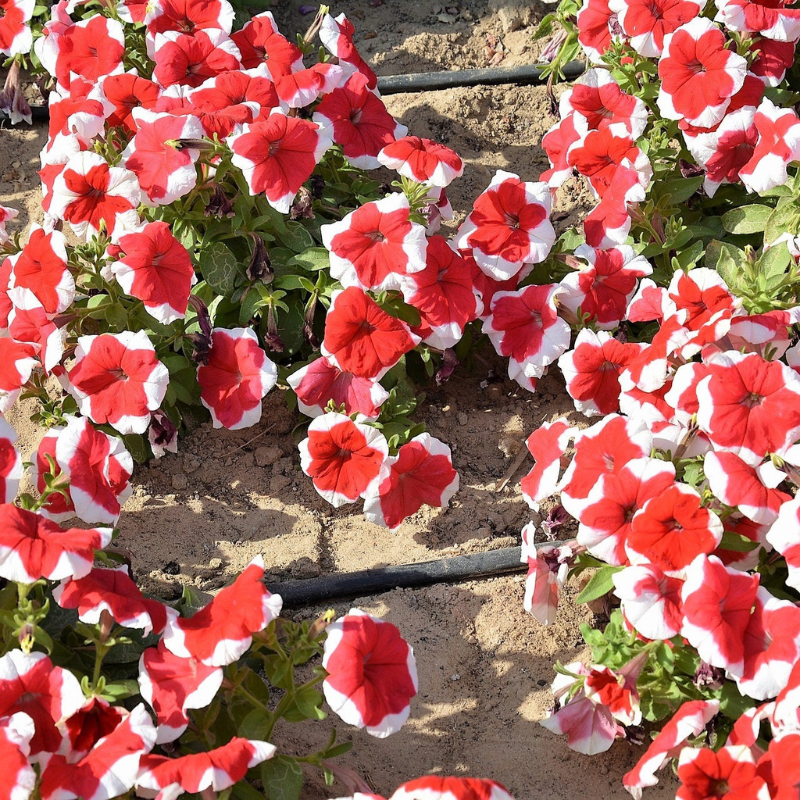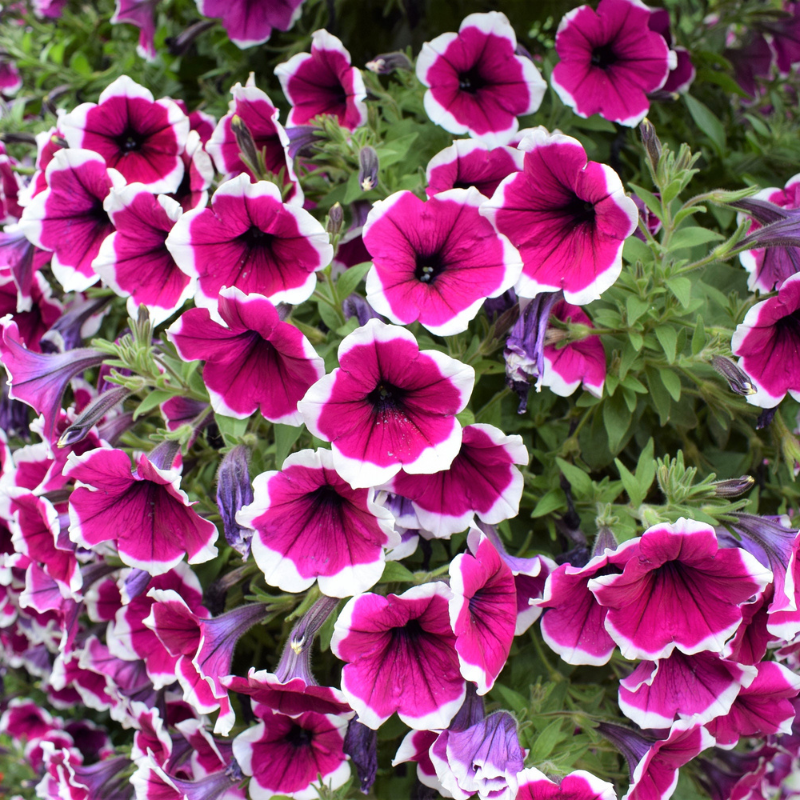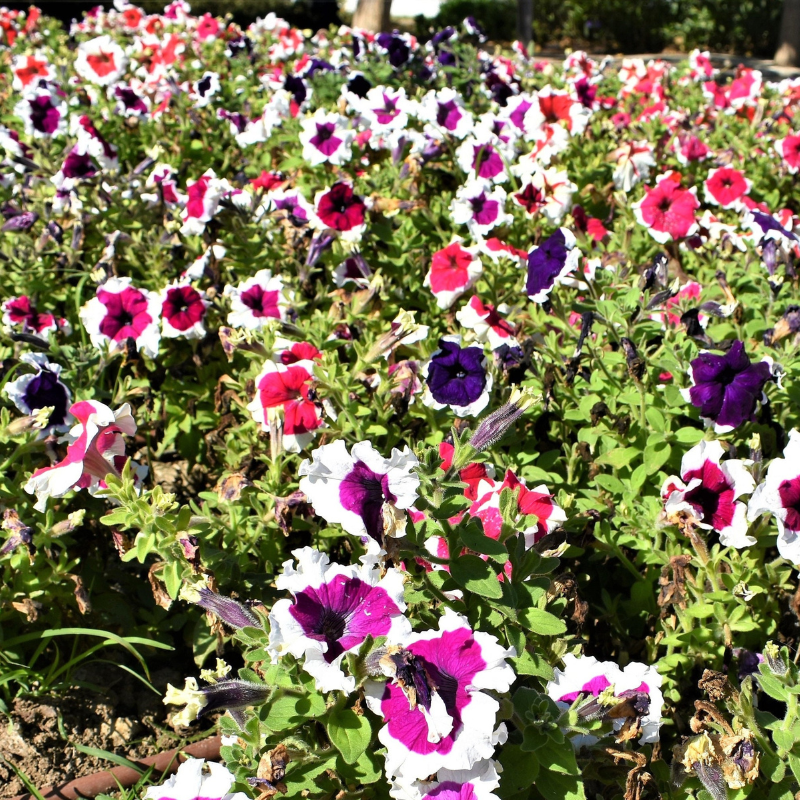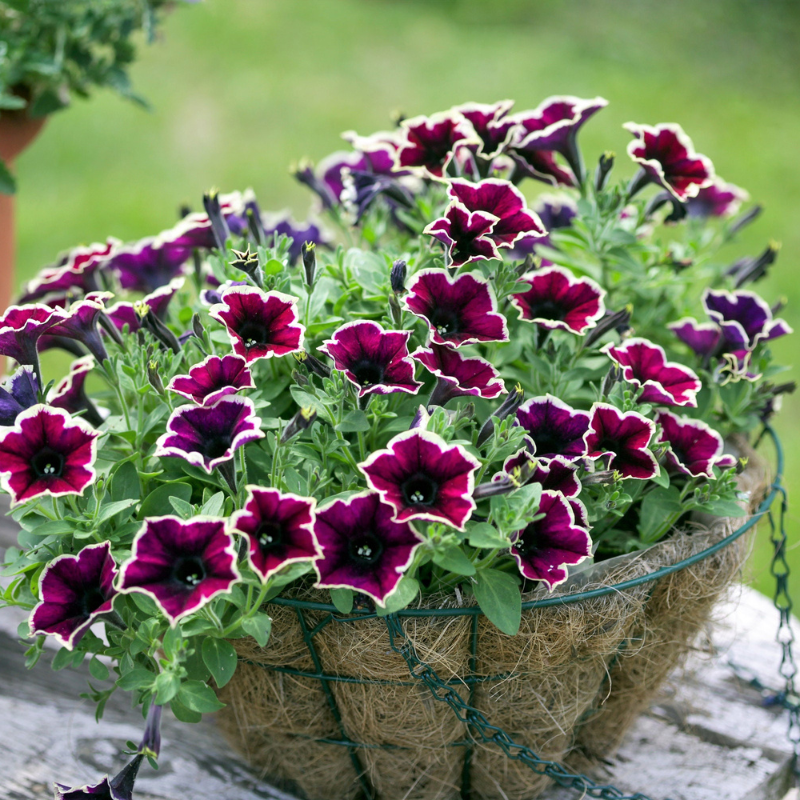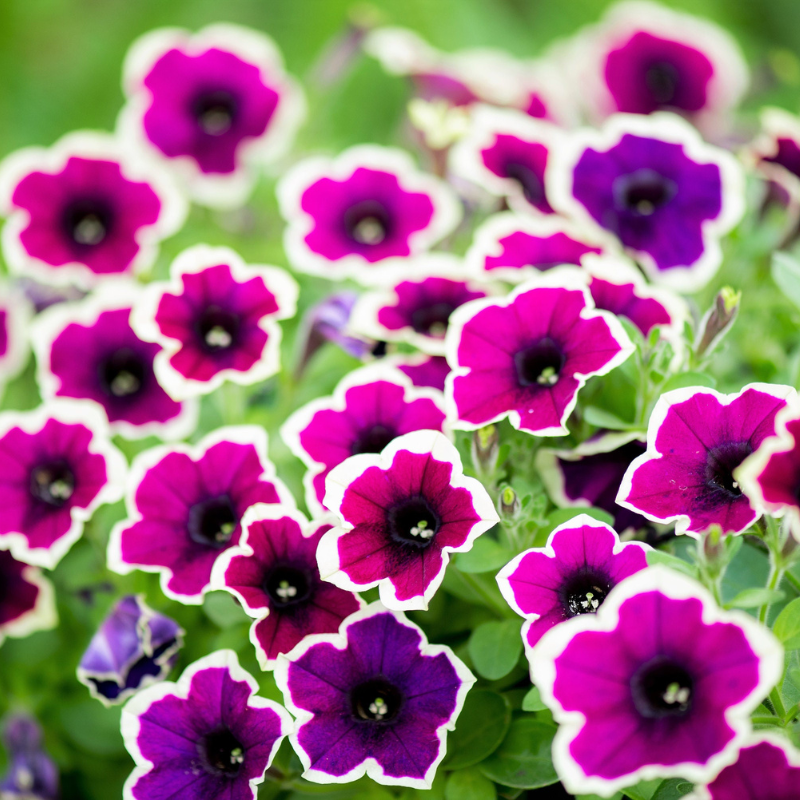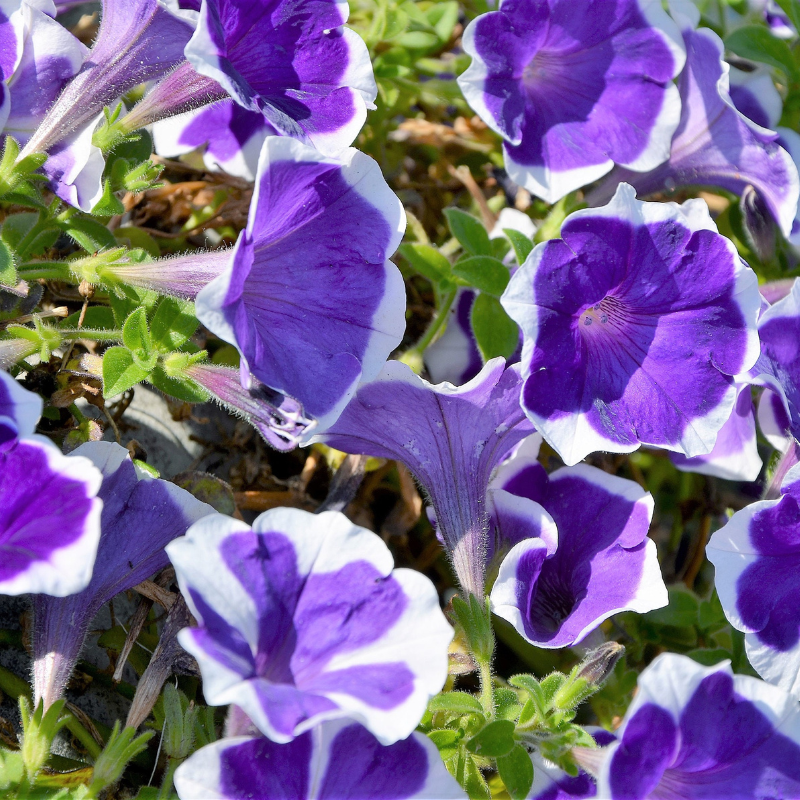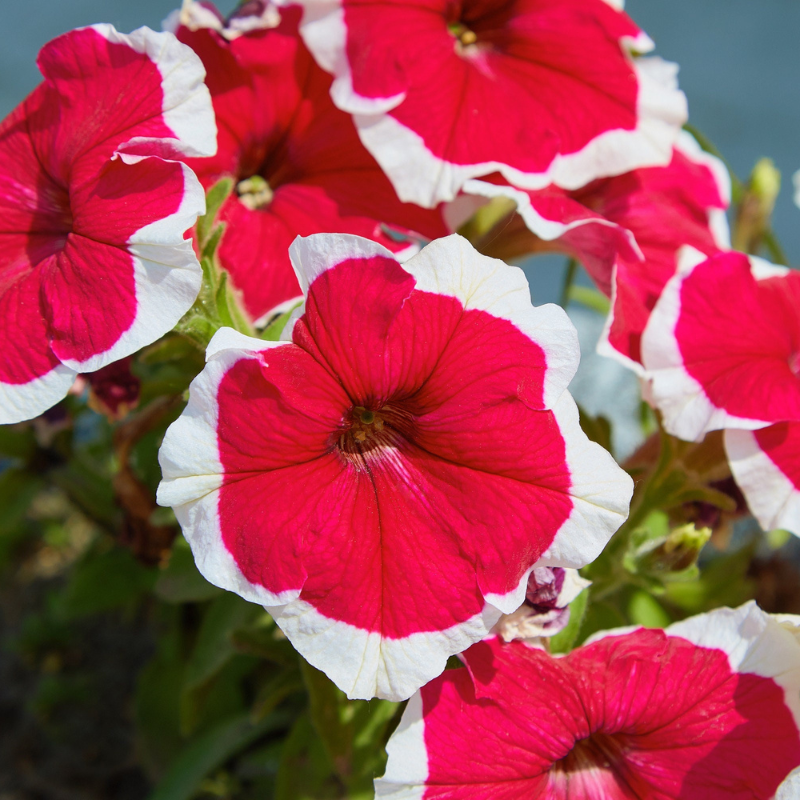- Historical context: Petunias are a popular flowering plant that has been cultivated for ornamental purposes for centuries. The Picotee variety is known for its distinctive, bi-colored petals with contrasting edges.
- Geographical origination: Petunias are native to South America, particularly Argentina, Brazil, and Uruguay.
- Relevant cultural significance: Petunias have been widely appreciated in gardens and landscapes for their vibrant colors and ease of care. The Picotee variety, with its unique petal edges, has become a favorite among gardeners looking for a striking visual appeal.
- Time period of discovery: Petunias were first discovered in the 18th century, with the Picotee variety being developed through selective breeding in the 20th century.
- Original habitat: Petunias originally grew in the warm, temperate regions of South America, thriving in well-drained soils and sunny locations.
- Notable historical uses: Primarily used for ornamental purposes in gardens, hanging baskets, and window boxes.
- Ideal temperature range: Petunias thrive in temperatures between 60°F to 75°F (15°C to 24°C).
- Soil type: Well-drained, fertile soil with a pH range of 6.0 to 7.0.
- Sunlight requirements: Full sun, requiring at least 6 hours of direct sunlight per day.
- Watering needs: Moderate watering, ensuring the soil remains moist but not waterlogged. Water at the base to avoid wetting the foliage.
- Planting season: Spring, after the last frost date.
- Germination time: 7 to 14 days.
- Growth cycle duration: Annual, completing its life cycle in one growing season.
- Common pests and diseases: Aphids, spider mites, and whiteflies. Diseases include powdery mildew and root rot.
- Companion planting advice: Petunias pair well with marigolds, geraniums, and other sun-loving annuals.
- Common challenges and solutions: Overwatering can lead to root rot. Ensure proper drainage and avoid overhead watering to prevent fungal diseases.
- Nutritional values: Not applicable, as petunias are ornamental plants and not consumed.
- Health benefits: Not applicable for direct health benefits, but they contribute to mental well-being by enhancing the aesthetic appeal of gardens and living spaces.
- Culinary uses: None, as petunias are not edible.
- Medicinal uses: None, as petunias are primarily ornamental.
- Other unique advantages: Visual appeal: The Picotee Mix Petunia is known for its striking bi-colored petals with contrasting edges, making it a standout in any garden.
Versatility: Suitable for garden beds, borders, hanging baskets, and containers.
Ease of care: Petunias are relatively low-maintenance, making them ideal for both novice and experienced gardeners.
